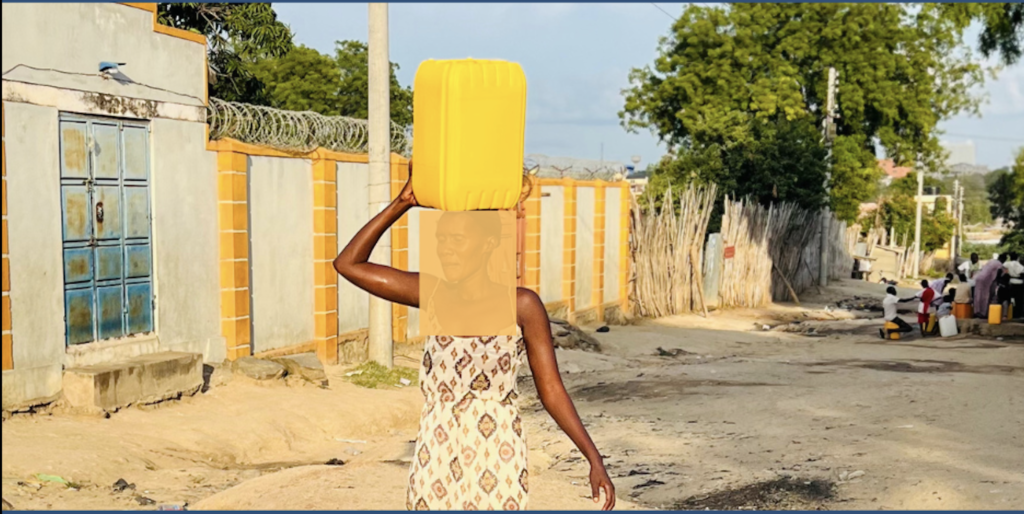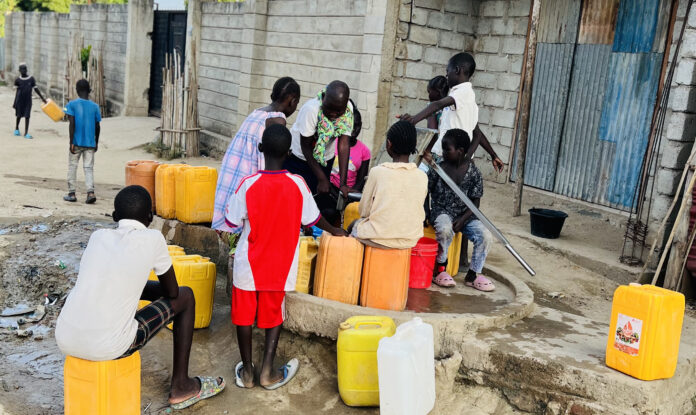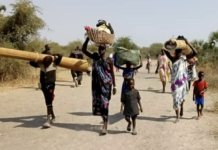The residents of Juba have voiced growing concerns following a weeklong strike by water tanker operators, which has left many neighborhoods without access to clean water.
The strike began after the Juba City Council announced a price reduction for a barrel of water, lowering it from 5,000 South Sudanese Pounds (SSP) to 2,500 SSP. The tanker operators protested the decision, arguing that the new price is unsustainable given the rising costs of fuel and maintenance.
As a result, large sections of Juba have experienced severe water shortages. Desperate for alternatives, many residents have resorted to using boreholes for their water needs.
However, they report that borehole water is not suitable for drinking or cooking due to its high salt content, raising health concerns in the affected communities.
Mama Juan, a resident of Hai Munuki, said her area has been without water tankers for five days, forcing her family to rely on borehole water for cooking, drinking, and cleaning.

“The water from the boreholes is salty and difficult to drink. We are worried about the health risks, but we have no other choice,” she said.
She also noted that the few boreholes available are overwhelmed by the large number of residents trying to fetch water, leading to long queues. “The boreholes have not been maintained properly, and they could break down due to overuse, especially with children often sent to fetch water,” she added.
Anne Christine, a resident of Dar el Salaam, criticized the government’s decision, stating that it was made without considering the impact on the population. “Water is life, and without it, people’s health is at risk. The high water prices have been tough on everyone, but completely cutting off access to water is even worse,” she said.
Rebecca Woja expressed her frustration over the poor quality of borehole water. “I can’t use borehole water for cooking; it changes the taste and color of the food. Even if the water tankers charge higher prices, it’s better than having no clean water at all,” she said.
Baraka Samuel, an Eritrean national who supplies water to households in Juba, confirmed that he halted his business after the City Council’s decision. “I stopped delivering water on Sunday because of the enforced price reduction. I want to resume, but the matter hasn’t been resolved, and security forces are monitoring us,” he explained.
Activist Ter Manyang, Executive Director of the Centre for Peace and Advocacy condemned the government’s failure to find an alternative solution to the water crisis. “The prolonged delay in addressing this issue reflects the government’s inability to provide a sustainable plan for water distribution,” he said.
Alison Taligi from the Juba City Council acknowledged that the decision to lower water prices was made without fully considering the operational challenges faced by the water tankers, most of which are run by foreign operators.
He assured the public that the City Council is working to resolve the issue and allow tankers to resume their services.
In the meantime, residents continue to suffer, calling for immediate action to ensure access to clean water and prevent further health risks in the city.





